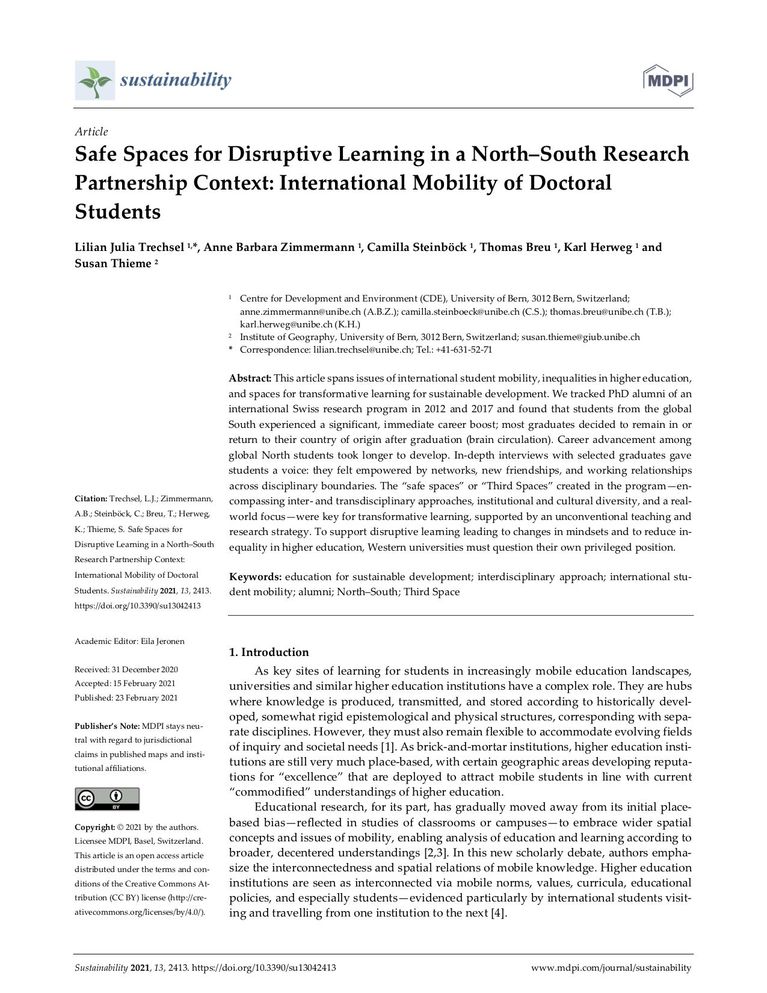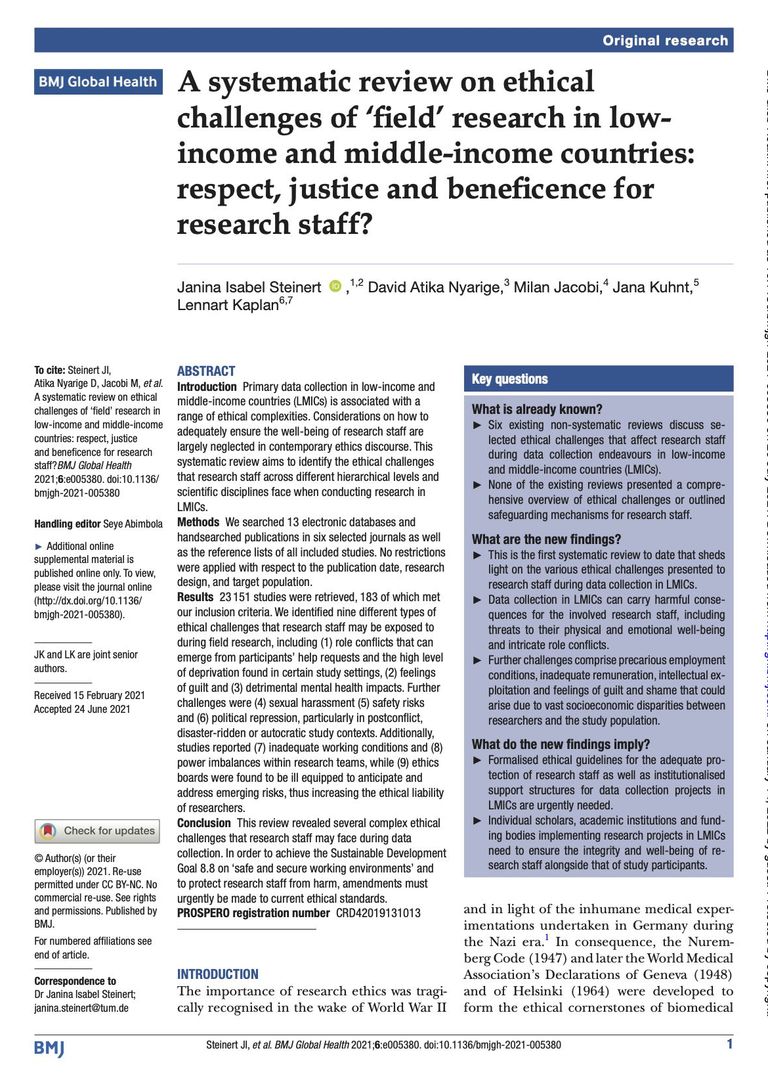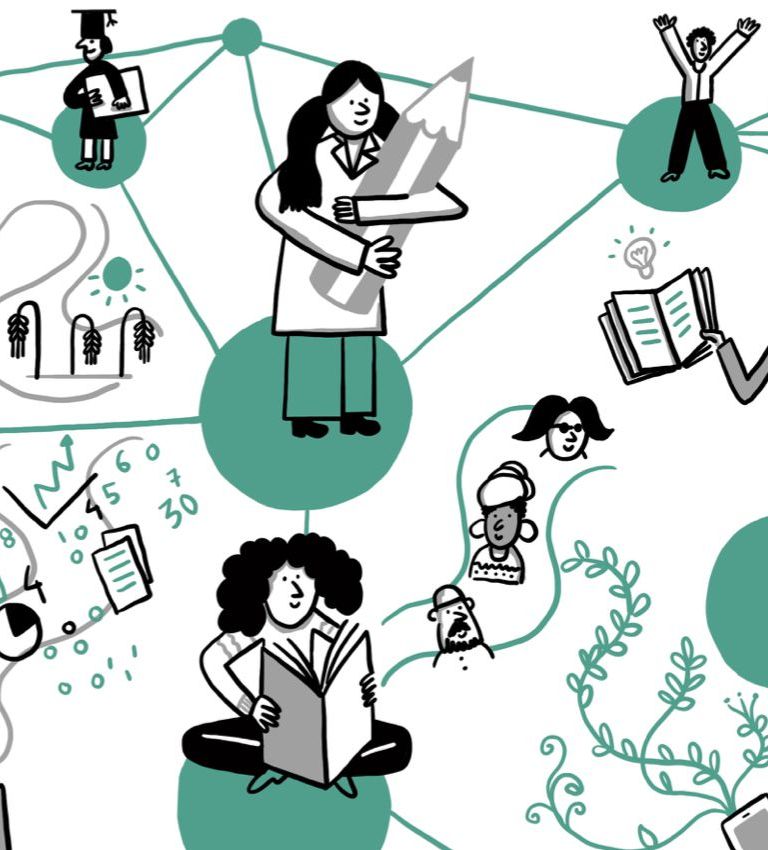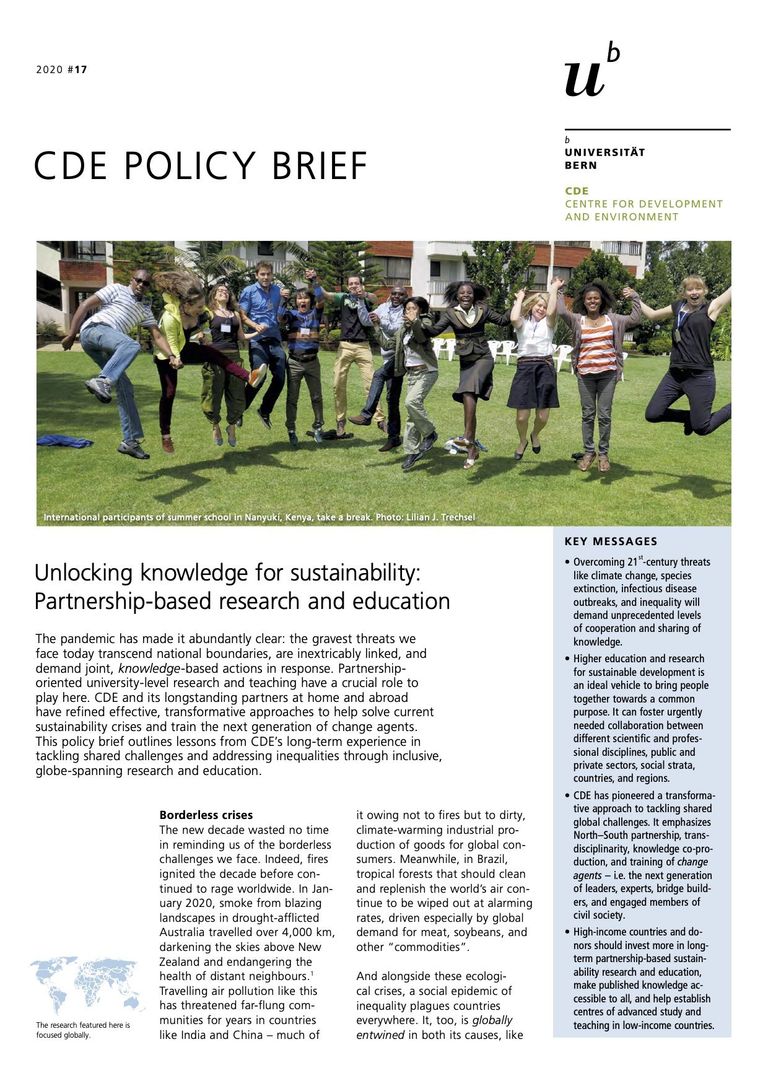Safe Spaces for Disruptive Learning in a North–South Research Partnership Context: International Mobility of Doctoral Students
This article spans issues of international student mobility, inequalities in higher education, and spaces for transformative learning for sustainable development.

The authors tracked PhD alumni of an international Swiss research program in 2012 and 2017 and found that students from the global South experienced a significant, immediate career boost; most graduates decided to remain in or return to their country of origin after graduation (brain circulation). Career advancement among global North students took longer to develop. In-depth interviews with selected graduates gave students a voice: they felt empowered by networks, new friendships, and working relationships across disciplinary boundaries. The “safe spaces” or “Third Spaces” created in the program—encompassing inter- and transdisciplinary approaches, institutional and cultural diversity, and a real-world focus—were key for transformative learning, supported by an unconventional teaching and research strategy. To support disruptive learning leading to changes in mindsets and to reduce inequality in higher education, Western universities must question their own privileged position.
Read the full open access article online
Numéro standard : DOI: 10.3390/su13042413
Source: Trechsel, L.J.; Zimmermann, A.B.; Steinböck, C.; Breu, T.; Herweg, K.; Thieme, S. Safe Spaces for Disruptive Learning in a North–South Research Partnership Context: International Mobility of DoctoralStudents. Sustainability 2021, 13, 2413. https://doi.org/10.3390/su13042413




